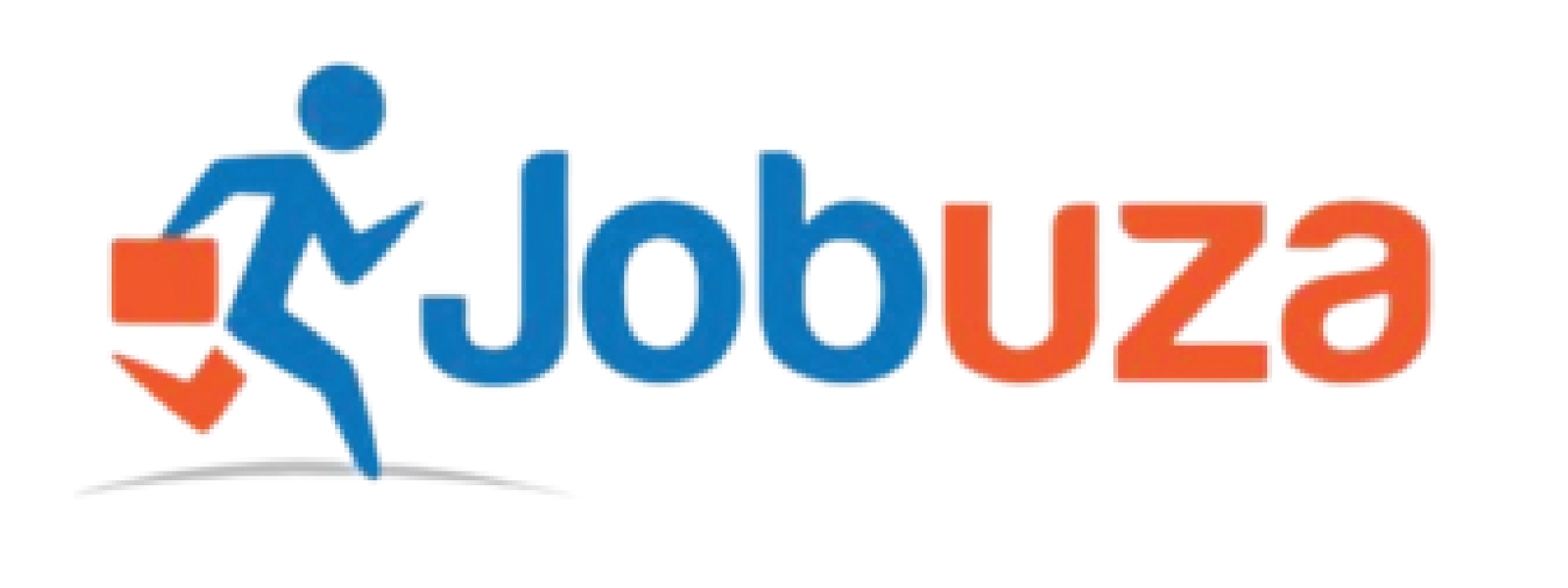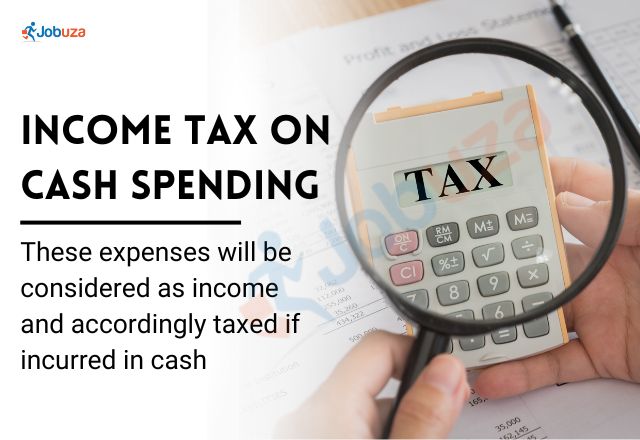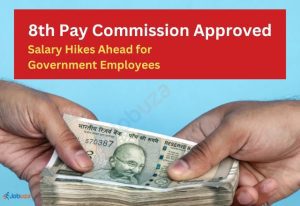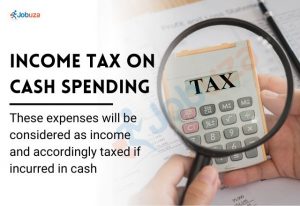The Income Tax department wants you to use cash responsibly so that you don’t get into any trouble as far as compliance with income tax laws are concerned. The Income Tax department says you can’t claim any tax deduction if you use cash for transactions like donations to political parties, rural development, etc. Moreover, the law also mentions that if you use cash for conducting transactions, then in certain circumstances you can’t claim expenses as deductions against your income thereby inflating your income and thus increasing your tax liability.
The brochure issued by the Income Tax Department points out various provisions wherein excess payment made by way of cash will be deemed as income. This also indicates how the government is focused on reduction of illicit cash payments and formalisation of the economy. Specified expenses shall accordingly be deemed as income of the taxpayer and accordingly taxed if payment is made in cash exceeding Rs 10,000,” says Chartered Accountant Bimal Jain, founder, A2Z Taxcorp LLP.
An educational brochure part 2 of “Say NO to CASH” was recently released by the Income Tax Department.
Read below to find out what aspects you need to consider before using cash for conducting daily transactions:
Say No to Cash, says Income Tax Department
According to the part 2 of the brochure here are the details:
Category A (iii): Provisions of Penal Nature Denials of Exemptions
Section 13A, 13B and Rule 17CA
Exempting incomes(voluntary contributions) of Electoral Trusts donating to Political Parties registered under Section 29A of the Representation of the People Act, 1951
“NO DONATION exceeding Rs 2000 is received in cash by such Political Party. Tax Exemption not available to the Electoral Trust if the above mandate is violated,” said the Income Tax Department.
Category A (iv): Provisions of Penal Nature Denials of Exemptions
Amount borrowed or repaid on hundi (section 69D)
Where any amount is borrowed on a hundi form, or any amount due thereon is repaid to, any person in cash, such amount is deemed to be income of the person borrowing or repaying the amount in the financial year of borrowing or repayment.
Category B(i): Restricting Cash Transactions Disallowances of Expenses
Disallowance of expenses incurred in cash section 40A(3)
Deemed Income of business or profession if the payment towards expenditure incurred in one year is made in cash in the subsequent year section 40A(3A)
- If a person incurs any expenditure towards his business or profession in which the payment (or aggregate of payments) made to any other person on any given day in cash exceeds Rs 10,000 no deduction is allowed in respect of such expenditure.
- If any liability towards unpaid expenditure is incurred by a person in a year and paid by such person in any subsequent year, any payment (or aggregate of payments) thereof exceeding Rs 10,000 in cash will be deemed to be the Profits and Gains of business or profession chargeable to income-tax as income of such subsequent year.
- In case the payment is being made for plying, hiring, or leasing goods carriages, then the aforesaid limit will be Rs 35,000.
- Exceptions to the above include payments made by purchasers to the cultivators of agricultural produce.
Also read: These cash transactions may attract up to 100% penalty by Income Tax Department
Rule 6DD: Quoting PAN and furnishing Form No. 60 under Rule 114B do not apply to sale transactions of Rs 2 lakh or less of agricultural produce.
Disallowance of depreciation 2nd proviso to section 43(1)
A payment or aggregate of payments in cash exceeding Rs 10,000 made by a person to any other person on a given day towards acquiring an asset:
● Will not be included in determining the actual cost of such asset
● No depreciation will be available on such capital expenditure paid in cash.
Section 35AD: Deductions in respect of expenditure on specified business
- Upon satisfying certain conditions, the persons engaged in the specified business are eligible for deduction@100% (weighted deduction@150% in a few cases) of the capital expenditure incurred wholly and exclusively towards such specified business.
- No deduction as above will be allowed on a payment or aggregate of payments made towards such expenditure in cash exceeding Rs 10,000 on any given day.
Category B(ii): Restricting cash transactions reducing deductions under chapter VIA
Cash donations exceeding Rs 2000 Section 80G(5D)
Donations made to certain funds, charitable institutions, etc, are deductible under section 80G. To avail of this benefit, any such sum exceeding Rs 2,000 needs to be paid in any mode other than in cash.
Cash donations exceeding Rs 10,000 made towards scientific research or rural development- Section 80GGA (2A)
Section 80GGA allows deduction in respect of certain donations made towards scientific research or rural development. From June 1, 2020, no deduction will be allowed in respect of any sum exceeding Rs 2,000 not paid in any mode other than in cash.
Cash contributions made to political parties- section 80GGB and Section 80GGC
Allows deduction to:
- Indian companies: and
- Other persons (other than a local authority or every artificial judicial person wholly or partly funded by the Government)
- For contributions made in non-cash mode to any political party or an electoral trust.
- NO deduction as above is allowed for any contribution made in cash.
“This is a very helpful publication by the Government. This publication compiles all the provisions of the Income Tax Act, 1961 pertaining to transactions in cash. This will promote awareness of the limits in the usage of cash and the penal consequences of non-compliance within the taxpayers. This will also further the progress of the country towards a non-cash economy,” says chartered accountant Hrishikesh A. Wandrekar, Wandrekar and company.
Deduction in respect of employment of new employees- Section 80JJAA
- Subject to certain conditions, a deduction of an amount equal to 30% of the costs incurred towards additional employees is allowed.
- No deduction will be allowed towards the above for payments made in cash.
Chartered Accountant Ashish Niraj , Partner, A S N & Company, says, “Donation above Rs 2000 in cash is prohibited under Section 13A and 13B read with Rule 17CA for exemption to electoral trust. Also as per Section 69D any amount borrowed or repaid in cash is deemed as income of borrower or payer. Section 40A(3) provides for Disallowance of expenses incurred in cash for expenditure exceeding Rs 10,000. Also cash payment exceeding Rs 10,000 of last years liabilities in cash in subsequent year is disallowed under Section 40A(3A). In Goods carriage cash transactions are popular due to unorganised sector dominance . In such cases Cash limit is higher at Rs 35,000 in place of Rs 10,000.”
Category B(iii): Restricting cash transactions (Incentivising deductions under chapter VIA)
Deductions in respect of health insurance premiums- Section 80D(2B)
Payments made towards health insurance premiums in any mode other than cash are deductible under Section 80D. However, payments towards preventive health check-up can be made in cash.
Category B(iv): Restricting cash transactions leveraging tax audit thresholds
Threshold for the audit of accounts increased if cash transactions do not exceed 5% applicable w.e.f. Assessment Year 2022-23- proviso to Section 44AB(a)
● The threshold for mandating tax Audit for a business is Rs 10 crore provided that:
1. Aggregate receipts in cash in a year do not exceed 5% of the total; and
2. Aggregate payments in cash in a year do not exceed 5% of the total
Until the AY 2021-22, the above threshold was Rs 5 crore if the above criteria were satisfied. The normal threshold for the tax audit of a business is otherwise Rs 1 crore.
“Income Tax Act allows deduction of expenses incurred in a financial year even if it’s actual payment is made in subsequent year as per mercantile concept. However if any due expense which was allowed in earlier previous year is paid in cash in subsequent next year exceeding Rs. 10,000 then it will be deemed to be income of that year in which such cash payment was paid as per Section 40A(3A),” says Niraj.
Category B(v): Incentivizing cashless transactions reducing the presumptive rate of tax
Section 44AD: Reducing the presumptive rate of income from 8% to 6% of total turnover or gross receipts
- The proviso to section 44AD(1) applies a lower presumptive rate of tax@6% of total turnover or gross receipts on amounts received in cashless mode, whether by account payee cheque or bank draft, electronic bank-clearing or other prescribed electronic mode.
- The amounts may be received during the previous year or before the due date of filing of the Return of Income under section 139(1).
Category C: Applying tax deductibility at source (TDS) withdrawals/payments in cash
TDS on payment of certain amounts in cash-Section 194N
- TDS@2% is applicable on cash withdrawals made above Rs 1 crore from:
- Banks;
- Co-operative societies carrying on the business of banking;
- The post office
However, if a person has not filed Returns of Income for 3 assessment years relevant to 3 previous years for which the respective time limits under section 139(1) have expired, the applicable TDS will be:
- @2% on cash withdrawals totaling between Rs 20 lakh and Rs 1 crore and
- @5% on cash withdrawals exceeding Rs 1 crore.
“Cash transactions have long been a conduit for unreported income and a persistent challenge to our nation’s economy. The government’s sustained legislative measures to restrict cash transactions, coupled with initiatives like this comprehensive guide from CBDT, reflect a clear commitment to combating black money. Through systematic awareness campaigns and regulatory frameworks that incentivize digital payments, we’re witnessing a crucial shift towards a less cash economy that benefits all stakeholders,” says chartered accountant Deepak Chopra, head of direct tax committee, Karnataka State Chartered Accountants Association (KSCAA).
TDS on payments in cash to residents towards contracts, etc-Section 194M
- Any individual/HUF paying any sum exceeding Rs 50 lakh in a year to a resident:
- Towards work or labour contracts or
- By way of fees for professional services rendered will have to deduct TDS at 5%.
The above will apply whether or not the payments are made in cash, on credit or through non-cash channels.
Category D: Mandating the filing of return of income
Seventh proviso to section 139(1): From April 1, 2020, specified persons mandated to file return of income
- Applies to an individual, HUF, Association of persons, body of individuals, artificial judicial person who in any mode including in cash:
- Deposits Rs 1 crore or more in current accounts;
- Incurs expenditure on foreign travel in excess of Rs 2 lakh;
- Incurs expenditure on the consumption of electricity of more than 1 lakh
Section 234F: Penal consequence of a non-filer of a return of income before prescribed due date
Imposition/levy on the defaulter a fee of Rs 5000 and penal interest and other impositions and actions under the statute.







